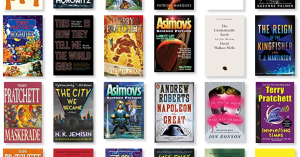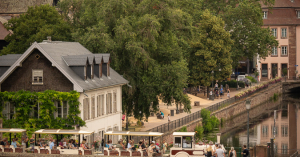How Paris Became Paris
I'm currently planning a trip to Europe, and while Top 10 Things To Do In Blah videos on YouTube have been useful, I decided that if I was going to spend a week in Paris then I wanted a deeper understanding of one of the world's great cities than monetized content on Google could provide. So I read How Paris Became Paris by Joan DeJean, which could more aptly be titled "How 17th Century Paris became 19th Century Paris". Nonetheless, this was an excellent starting point for my Parisian enlightenment (far better than Süskind's Perfume...) and it avoided overlapping my existing understanding of French History (also known as Andrew Roberts' Napoleon the Great).
How Paris Became Paris was well structured, centring chapters around specific urban features or cultural changes rather than trying to regale the two centuries chronologically. I admit that I did find the chapters about la mode (fashion) and shopping a bit less engaging than the history of the Pont Neuf and the first attempts at the tree lined boulevards in place of the old city walls. Paris was, according to this book, the first European city to have sidewalks, a mail service, lighting at night, and public transport. They also apparently were the first city to lean into "looking at the river and taking a picture", instead of lining their bridges with houses and shops in order to finance the structure.
I detected that the success of Paris comes down to a few key, raw elements that define human progress. War - conveniently starting and ending at the right times. The end of the religious wars - which provided a monarch a chance to spend money on civic developments to build a legacy as opposed to battled, and then the civil war that accelerated progress in printing and communications. Money. Flirting.
The history of Paris comes down to war, communication, money, sex, and being able to stare at a river. I actually think that distils humans down into their fundamental parts quite succinctly.
What this book didn't cover was the years during/after the revolution (Haussmann, Napoleon, the Eiffel Tower) or the years before it (The Bastille, Notre Dame, the palaces). It amazes me that nearly two centuries before my own city was founded there was magazine advertisements for fashion items in Paris. And that centuries before a city with the size and history of New York City there was Paris doing it's thing.
I recommend this book - a physical copy so that old paintings and engravings can be examined. I do wish it could have kept going, but hopefully later this year I will be able to contribute to the history of the city of Paris, or at least write down some of my experiences in it.


Comments